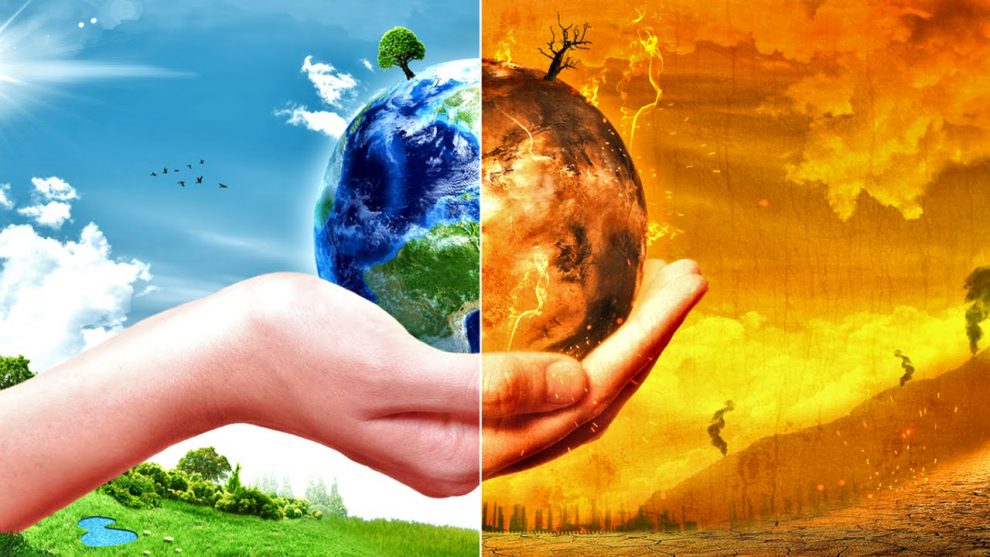“Such a beautiful and important evening! The forgotten man and woman will never be forgotten again. We will all come together as never before.”
These words were posted to President Donald Trump’s twitter they day after his election and convey the hopes of some for a new age of American politics. Even today, months after Trump’s election, it is widely believed that this president represented a shift in the American political climate. However, whether or not this change has been positive or negative is a much more contentious topic.
Evidence of the a negative shift in the American political atmosphere lies in protests like those in Charlottesville, and the rise of the far right in general. Trump, through his racially divisive comments, has enabled right-wing groups, from Neo-Nazis to the KKK. This was demonstrated in his response to the Charlottesville protests, saying there was blame on “both sides”, even though only the Neo- Nazis caused the death of an innocent girl, and also began to criticize the “alt left”, hardly criticizing the white supremacist groups involved.
Along with right-wing extremists, many contend that Trump has enabled new political candidates to run for office. Roy Moore, for example, holds extremely polarizing right-wing views, especially on gay marriage and the separation of church and state. Political contenders like Moore with controversial agendas were not successful in a pre-Trump era, but seeing Trump and his strategy to portray his controversial views as though they benefit the ordinary American helped Roy Moore win the Republican primary in the Alabama Senate race.
This includes the politicians who have little to no political experience- businessmen or lawyers turned politicians. In the past, candidates, such as Steve Forbes and Carly Fiorina, have quickly tried to shed their reputation of political inexperience. This tactic was usually unsuccessful, as Trump would show, this lack of experience had the potential to appeal to voters.
In Trump’s presidential campaign, he emphasized his lack of previous political involvement, instead of shying away from it like those before him. He recognized the distress of many Americans, particularly republicans, and how fed up they were with previous politicians. He used this understanding of his audience to propel his campaign to a success.
Other candidates are beginning to recognize this, and are trying to create the same divisive “us vs. them” dynamic between their supporters and institutions like the government and the media. This dynamic is also said by many to be what led to the aforementioned increase of hate groups and crimes. Trump’s rhetoric indicates that in his mind, and in the minds of those following his lead, the “us” typically includes “white, christian, males” which can become very toxic when these people feel the need to polarize any group of people that is not in this category, and therefore seen as “them”.
Trump’s rise to power has often been defined as an insurgence of extreme right- wing constituents. Many now see his election as a bit of an identity crisis for the G.O.P. Many Republican legislatures have spoken out against Trump, imploring the public to understand that he is not an accurate representation of the G.O.P. For example, Sen. Bob Corker from Tennessee, who said, “I do think there needs to be radical changes… the President has not yet been able to demonstrate the stability nor some of the competence that he needs to demonstrate in order to be successful.” However, Trump was elected by a majority of republican voters in the primaries, so the G.O.P does seem to be moving in a more right- wing direction. The magnitude of this shift will be shown in the midterm elections as many of these members of Congress who denounced Trump could be replaced by more extreme candidates. Fear of not being re- elected has caused a divide amongst republicans in Congress. The party cannot seem to decide on a common identity and goal of government and citizens, which is counterintuitive and counterproductive.
However, many arguments painting the changes of the American political climate could also be evidence supporting the continuity of the American political system. Discord within parties has always been an issue, including the negative campaigning methods of Andrew Jackson in 1828. The bicameral nature of the United States government has always has gridlock and partisan arguing, dating back to Alexander Hamilton and Thomas Jefferson. Certain issues will always be divisive, even within parties. So has Trump’s election changed the political climate and, if so, was this change for the better? That is up to everyone to decide.







